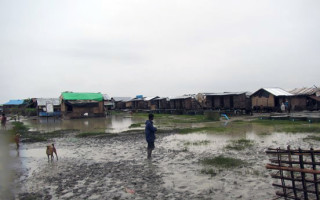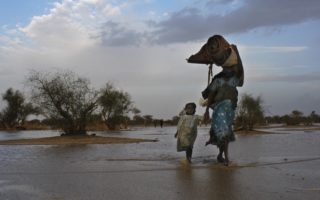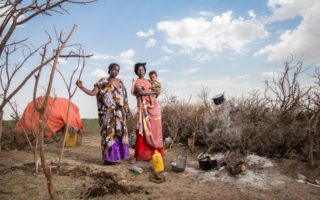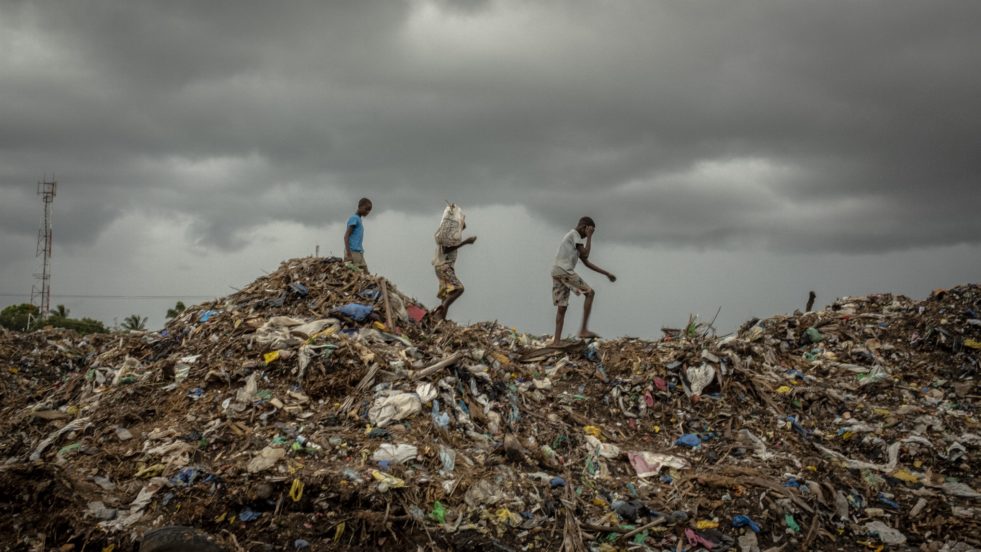
Photo: © UNHCR/Vania Turner
Far from home these refugees are still doing their part to combat climate change
“Our house is on fire — let’s act like it.”
This is the picture youth activist Greta Thunberg paints on the global climate crisis, which may well be the defining fight of our lifetime. It is a fight that, if lost, could cost us everything.
And nobody knows the risk and reality of losing everything better than a refugee.
For vulnerable refugees who have fled because of war, violence and persecution, the looming threat of climate inaction is already too real.
As world leaders and climate activists converge in New York for the Climate Action Summit, many refugees have already recognised you don’t have to be a head of state to take up this fight.
Meet eight refugees who are actively engaged in this global fight, taking concrete actions to tackle the adverse effects of climate change.
Céline, Entrepreneur + Force for Change
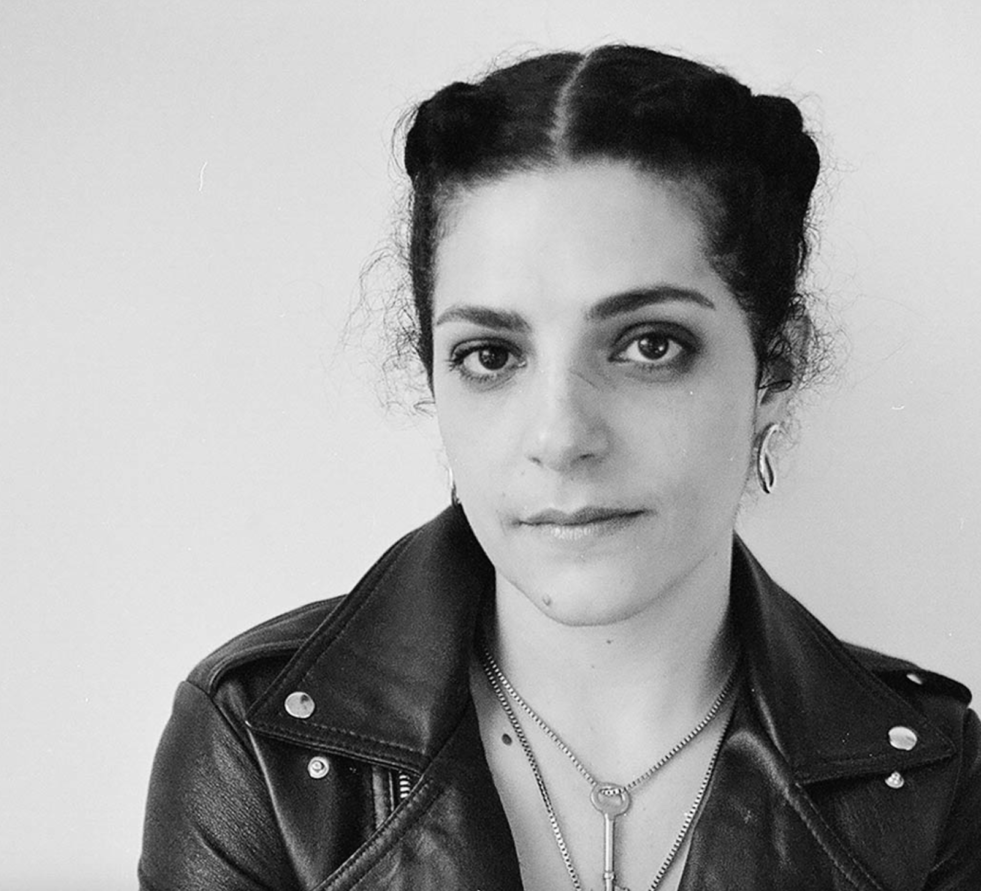
©SlowFactory/Driely Carter
Céline Semaan is founder of a Brooklyn-based design lab that is fighting to put environmental sustainability at the heart of the fashion industry — and beyond.
She is also a former refugee, whose earliest memory is fleeing war-torn Lebanon when she was three and a half years old.
As a designer, Céline feels a deep sense of responsibility to produce beautiful, meaningful and ethically made items — a feeling driven by her experience as a refugee knowing how easily things can be taken away.
Next up for Celine? She’s opening an industrial facility that will turn plastic and textile waste into new materials.
Omar, Sudanese Youth Leader in Egypt
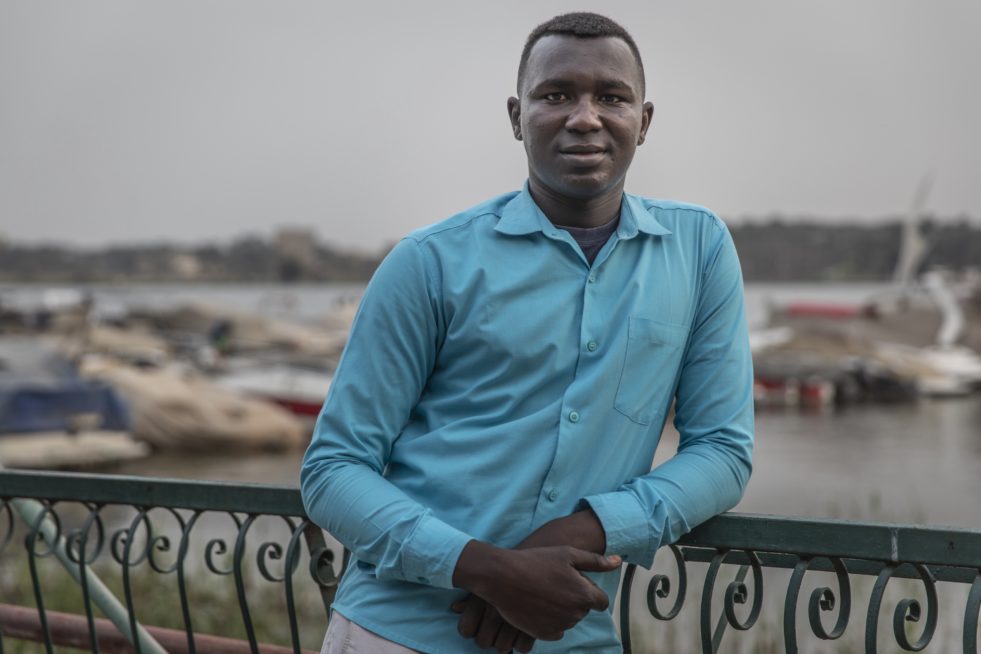
© UNHCR/Pedro Costa Gomes
Omar is one of 50 refugees working to fight plastic pollution on the Nile. Volunteering alongside 800 local Egyptians, refugees from five countries help haul plastics from floating trash islands that have accumulated on the banks of the Nile in downtown Cairo. In one day alone, the volunteers removed 11.5 tonnes of trash.
As founder of a youth group helping other Sudanese refugees integrate with local communities, Omar hopes their volunteerism will change perceptions about refugees.
“Today, volunteers will go back home and tell their parents that refugees from different communities helped them clean the Nile, and this will change their understanding of us to the better.”
Gharam, Green job employee in Lebanon
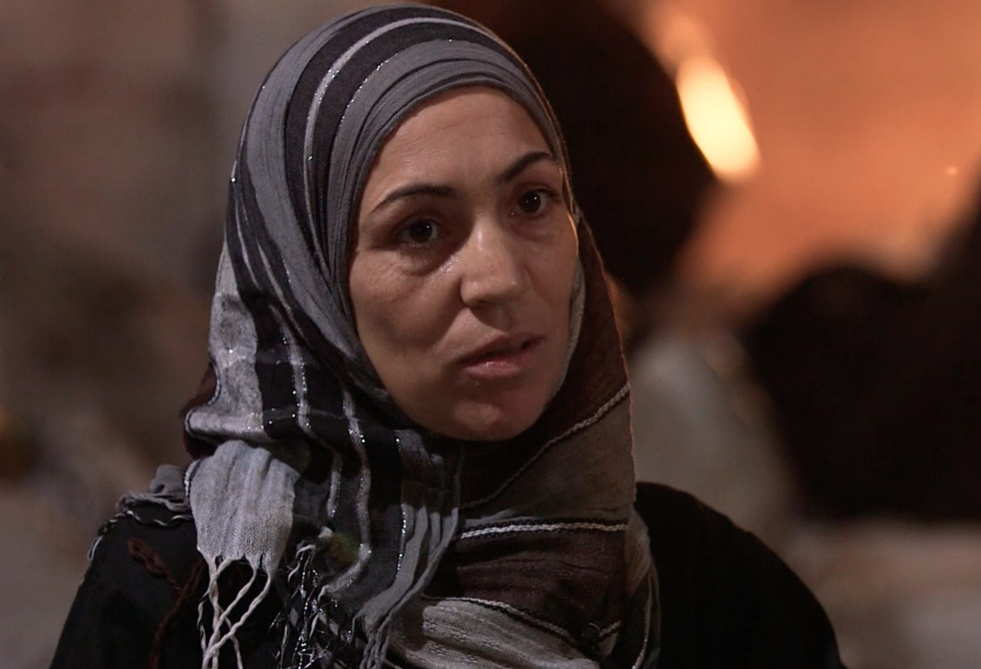
© UNHCR/Houssam Hariri
Gharam is one of the first Syrian refugee recyclers hired to tackle Lebanon’s garbage crisis that has plagued the country since 2015. The Syrian widow got her first-ever paid job at Recycle Beirut, an innovative project that aims to reduce Beirut’s brimming landfills, while giving much-needed work to vulnerable Syrian refugees.
For Gharam, this green job is more than just a means to pay her rent.
“They have a waste crisis now, and we are helping them.”
As home to more than a million registered Syrian refugees, Lebanon hosts more refugees per capita than any other country worldwide.
Abraham, Tree Planting Champion
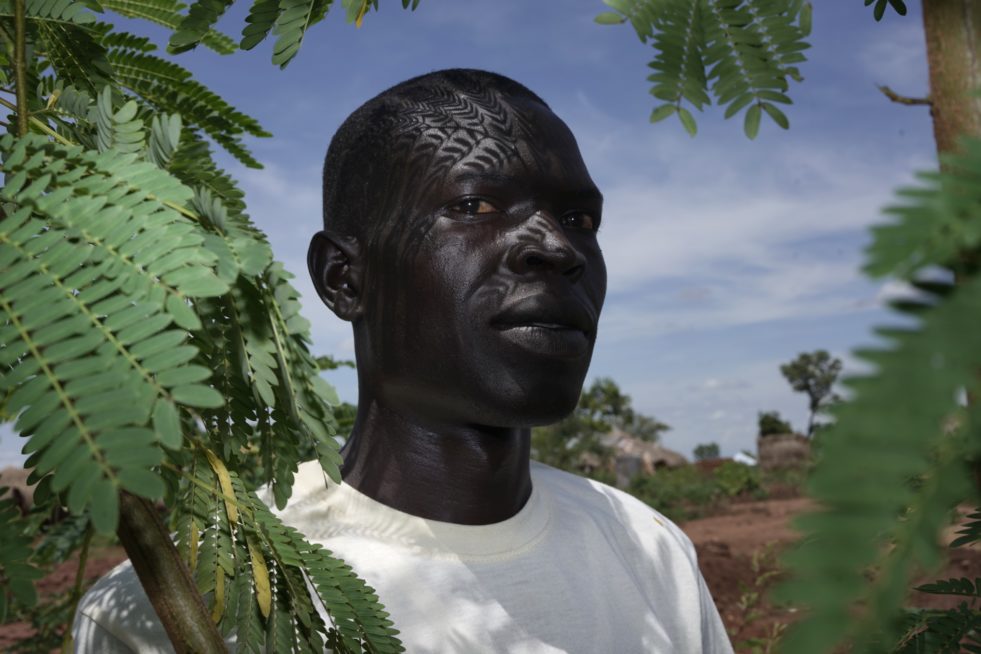
© UNHCR/Michele Sibiloni
He could not stop the war he fled, but Abraham Bidal could plant trees and care for the land which welcomed him and his fellow refugees.
Abraham is now a vocal advocate for tree planting, promoting a movement to conserve the environment in his new home country.
“Planting trees is important because trees are life…if one day we go back to South Sudan we can leave this place as we found it.”
UNHCR is working with the Government of Uganda to plant 8.4 million tree seedlings in 2019 and restore hundreds of hectares of trees within reserves and plantations.
Annick, Clean Energy Entrepreneur
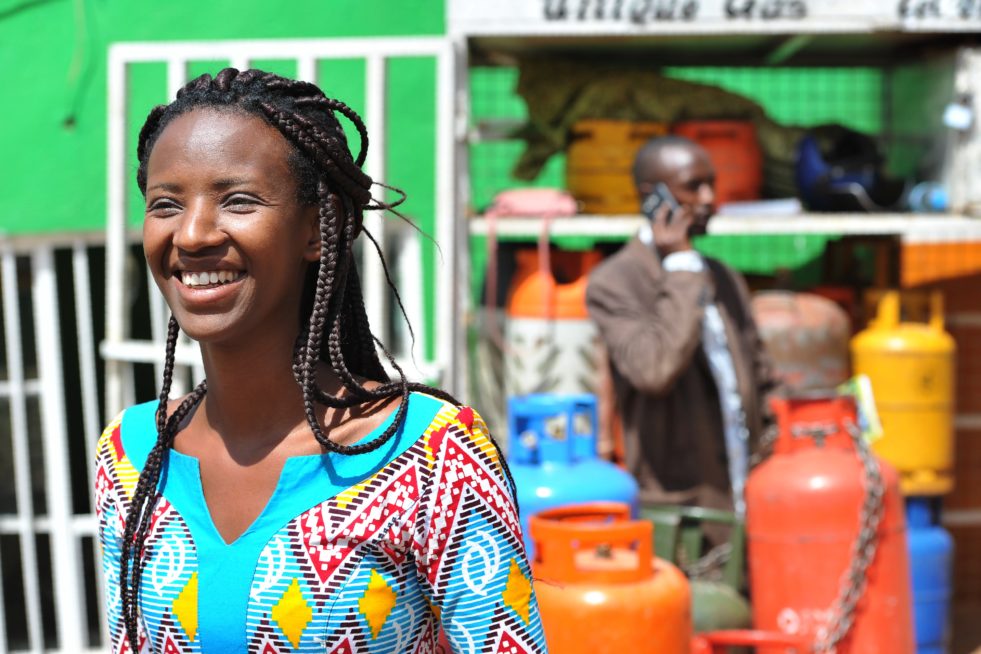
© UNHCR/Anthony Karumba
Kigali is known as one of Africa’s cleanest and greenest cities — and refugees like Annick are helping keep it that way. The Burundian entrepreneur earns a living selling clean energy gas, or liquid petroleum gas, and business is booming. Not only is Annick financially independent and a successful female entrepreneur, she’s boosting the local economy by creating clean jobs. This is a win-win-win situation — for refugees, Rwanda, and the environment.
Teteh, Desert Shelter Innovator
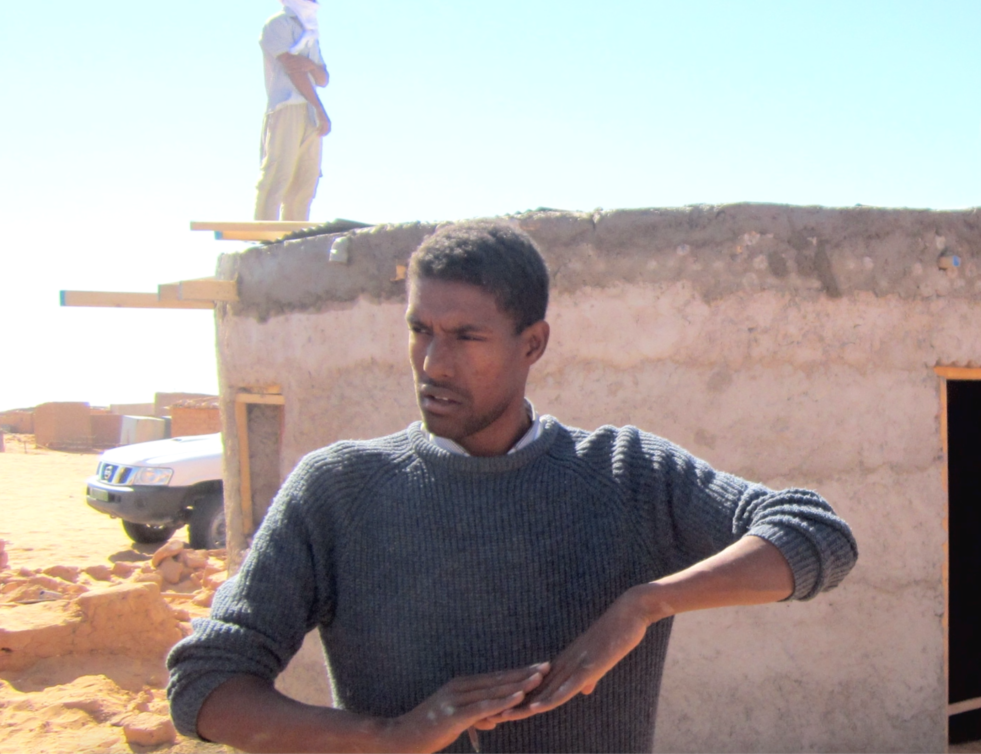
© UNHCR/Russell Fraser
Meet Teteh, a young refugee designing and building shelters out of discarded, sand-filled plastic bottles for the most vulnerable refugees in the remote desert of southwest Algeria. Thanks to his masters degree in energy efficiency and his innovative spirit, Teteh’s durable shelters proved to be a stronger, more sustainable alternative to the heavy rains and the strong sandstorms in the harsh desert climate where tens of thousands of Sahrawi refugees have lived for some 40 years.
The Rohingya Refugees Embracing Green Tech
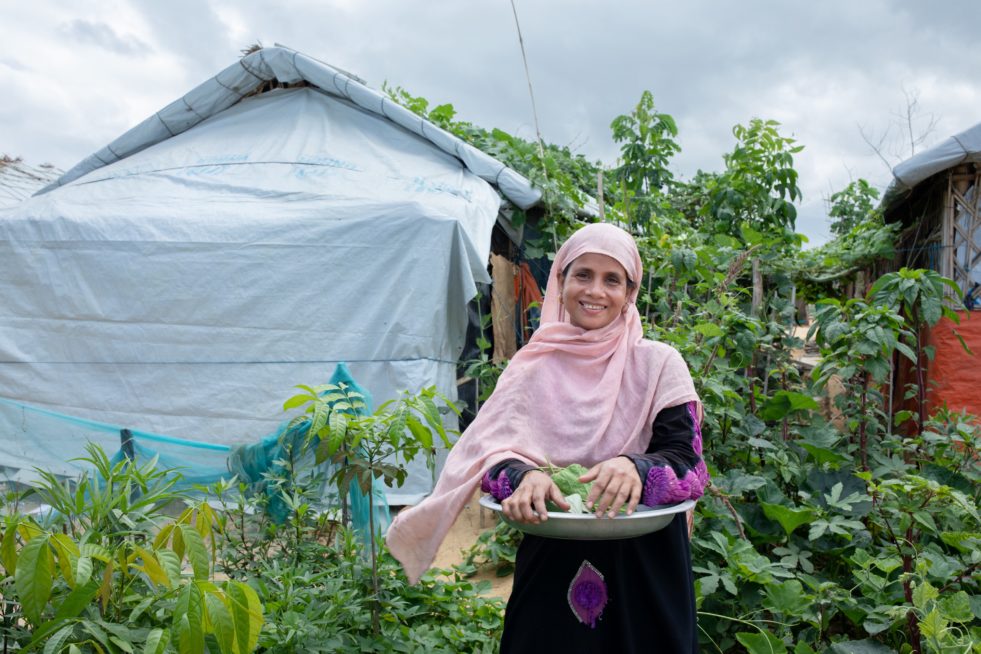
© UNHCR/Kamrul Hasan
In the two years since some 740,000 Rohingya refugees fled unspeakable violence in Myanmar, a number of refugees have taken up key roles in the humanitarian response.
At the heart of this work — in low-lying areas susceptible to landslides and flash floods — are efforts to offset environmental damage through innovation and non-polluting technology.
From refugee-led farming projects that combat the effects of deforestation and erosion to solar-powered safe water systems that reduce energy costs and emissions, these refugees are the forefront of a humanitarian shift harnessing the use of green technology.
Abdullah, Solar Power Supervisor
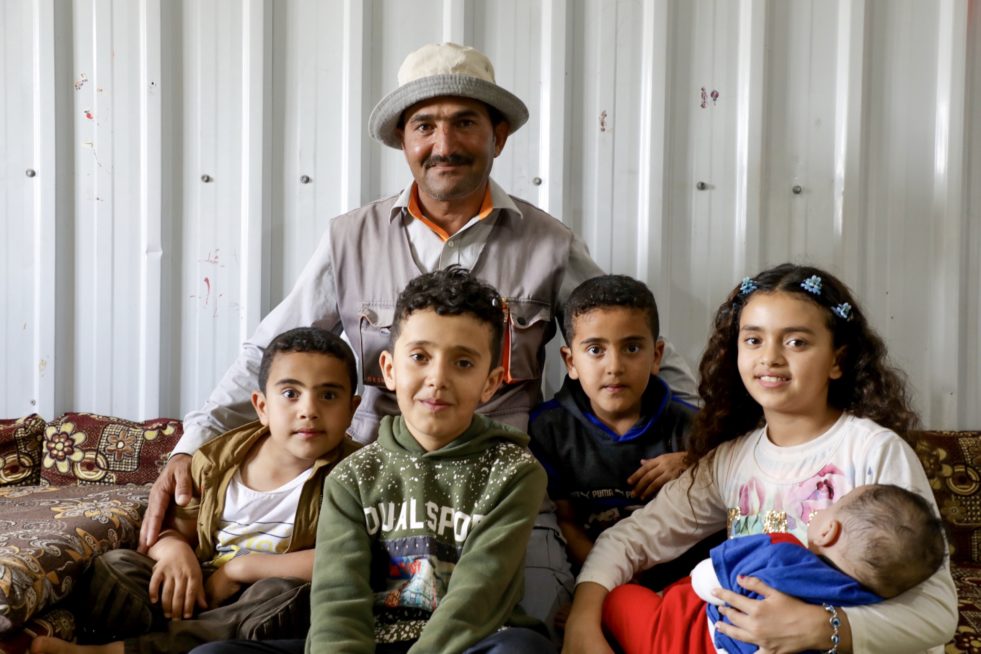
© UNHCR/Lilly Carlisle
Back home in Syria, Abdullah could comfortably provide for his growing family as an electrician. Now as a refugee in Jordan, this father of five puts his skills to good use as a supervisor at the solar power plant in Azraq, the world’s first clean-energy refugee camp.
Abdullah can support his family in dignity knowing his expertise in renewable energy serves the planet and also helps his fellow Syrians light their homes, charge their phones and chill their food.
In neighboring Za’atari, the largest solar plant ever built in a refugee camp is providing clean and much-needed power to 80,000 Syrian refugees — all while reducing annual carbon dioxide emissions from the camp by 13,000 metric tons, equivalent to 30,000 barrels of oil.
Thanks to Lorey Campese.
Originally published on Medium on 20 September 2019



